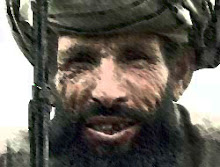 by Liesbeth Zegveld
by Liesbeth ZegveldFrom the publisher:
"Who is accountable under international law for the acts committed by armed opposition groups?"
In today's world, the great majority of political conflicts involve non-state actors attempting to exert a political influence (such as overthrowing a government or bringing about secession). Notwithstanding their impact on the course of events, however, we tend to know little about these groups, and even less about how to treat their actions legally. This study will be of interest to academics, postgraduate students and professionals involved with armed conflict and international relations.
Liesbeth Zegveld practises as an international and criminal lawyer. In 1998, she received a Fulbright Scholarship to do research at New York University and the Inter-American Commission on Human Rights in Washington, D.C. For her dissertation on armed opposition groups she received the degree ‘cum laude' and The Netherlands' Human Rights Award, 2000. She is the co-author, with Frits Kalshocven, of the third edition of Constraints on the waging of war: an introduction to international humanitarian law (ICRC 2001).
From LWBN:
The exact day of release for this December title is unknown.




































